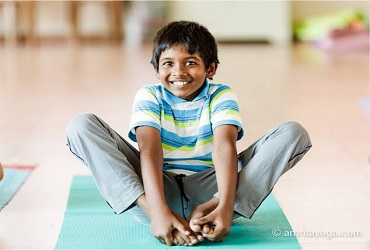Introducing Self-Management in preschoolers
Self Management is to regulate one's emotions, thoughts, behaviours and social interactions effectively by acting cautiously, managing stress and empathising with their feelings to prepare goal directed actions. It also includes being able to control impulses to upsetting stimuli, to calm down to adjust in different environmental settings and to take charge of the self by not throwing a tantrum. It is a set of skills that helps children to adapt in an unpredictable world. Self-regulation has been considered a “central and significant developmental hallmark of the early childhood period” (Bronson, 2000, p. 32)
To understand self management in preschoolers, Zimmerman’s theory of Self-regulation can be easily broken down into two types, emotional self regulation and cognitive self regulation. Emotional self regulation involves the control of emotions in different scenarios. For example, to control anger by calming down is emotional self regulation. Cognitive self regulation involves taking action which benefits personal goals, for example, fighting the urge to not sleep late on a monday morning.
In early childhood, self regulation skills are developing rapidly. Children are eager to learn for which caregivers and educators have to provide a safe and protected environment for them to develop the skill. They need exposure to practice out the learned skill, instructions to brush up the skill and support to rely on.
Laying the foundation of children’s self regulation in early childhood is important as to promote attention, problem solving and coping strategies. It is also a strong predictor of academic performance and success​. Effective emotion management allows a student to focus on performing during tests and exams, rather than being impaired by anxiety.
One way to promote the development of self- regulation in kids is through actively making them participate in activities which might induce stress instead of avoiding them so that they are able to practice self regulation and later, are able to handle these situations. The kids might throw a tantrum, but the caregiver has to be firm and not give into it, instead the situation should be handled calmly. This helps children to self-reflect, become more thoughtful.
The marshmallow experiment by Walter Mischel proves that kids who delay gratification; to resist instant gratification for a better reward later, by distracting and controlling impulses are able to regulate their emotions easily. The children who had waited for the treat performed better academically years later than kids that ate the treat right away. Those who delayed their gratification also displayed fewer behavioral problems and delinquent behaviors.
Preschoolers with neurodevelopmental disorders like Learning Disabilities and Attention-Deficit/ Hyperactivity Disorder (ADHD) impact brain development. Children with LD and/ or ADHD need more patience and support as they struggle with self-regulation, sensory, language, processing and executive functioning, and/ or other challenges. Behavioral and emotional reactivity are determined by variation in sensitivity to stimulation in the brain’s emotional and motivational systems. (Posner & Rothbart 2000)
Following a self regulation framework with comprehensive interventions, and environmental support, improves self regulation in children and parents as well. “Such early investment is expected to pay large dividends in self-regulation capacity and outcomes across the lifespan. Moreover, because stronger self-regulation predicts higher income, better financial planning, lower rates of substance use and violence, and decreased long-term health costs, self-regulation investment can help us to build healthier communities for our families.” ( Duke Center for Child and Family Policy )
Self regulation is necessary for healthy emotional development and also helps in maintaining social relationships. Early introduction and learning about self-regulation will have a better social and academic outcomes and in careers in the future

